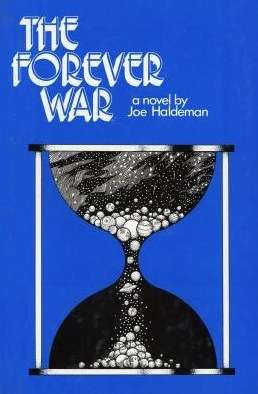The Forever War in Afghanistan
How a bloody conflict became background noise


"When it comes to wars, we Americans have a selective memory," Andrew Bacevich writes in today's New York Times. "The Afghan war, dating from October 2001, has earned the distinction of having been forgotten while still underway."
The fight in Afghanistan does sometimes feel like one of those couch-crushing pachyderms we've all quietly agreed not to discuss. The subject came up only glancingly in James Mattis' confirmation hearings, as though a prospective Pentagon chief's thoughts on America's longest-running war were of only peripheral concern. And Bacevich accuses Donald Trump of avoiding the topic entirely in his inaugural address and in that speech we're technically not supposed to call a state of the union. To be fair, the president did allude vaguely to spending "trillions of dollars overseas," an estimate that presumably included Afghanistan. But a little more specificity would have been welcome.
Bacevich offers some of those missing details:
Despite appropriating over three-quarters of a trillion dollars on Afghanistan since 2001, Afghan security forces continue to be plagued by the problem of inflated rolls, with local commanders pocketing American-supplied funds to pay for nonexistent soldiers; according to [a recent inspector general] report, "The number of troops fighting alongside 'ghost soldiers' is a fraction of the men required for the fight."…
Although the United States has invested $70 billion in rebuilding Afghan security forces, only 63 percent of the country's districts are under government control, with significant territory lost to the Taliban over the past year. Though the United States has spent $8.5 billion to battle narcotics in Afghanistan, opium production there has reached an all-time high.
For this, over the past 15 years, nearly 2,400 American soldiers have died, and 20,000 more have been wounded.
It's a blood-drenched disaster, and yet it's background noise. "As with budget deficits or cost overruns on weapons purchases," Bacevich concludes, "members of the national security apparatus—elected and appointed officials, senior military officers and other policy insiders—accept war as a normal condition." From their perspective, "war has become tolerable, an enterprise to be managed rather than terminated as quickly as possible. Like other large-scale government projects, war now serves as a medium through which favors are bestowed, largess distributed and ambitions satisfied." The costs will be borne elsewhere.
Editor's Note: As of February 29, 2024, commenting privileges on reason.com posts are limited to Reason Plus subscribers. Past commenters are grandfathered in for a temporary period. Subscribe here to preserve your ability to comment. Your Reason Plus subscription also gives you an ad-free version of reason.com, along with full access to the digital edition and archives of Reason magazine. We request that comments be civil and on-topic. We do not moderate or assume any responsibility for comments, which are owned by the readers who post them. Comments do not represent the views of reason.com or Reason Foundation. We reserve the right to delete any comment and ban commenters for any reason at any time. Comments may only be edited within 5 minutes of posting. Report abuses.
Please to post comments


You want the United States of America to admit to failing to do what the Soviets couldn't? NEVER.
Or anyone else. They don't call it the Graveyard of Empires for nothing.
Tonight we're going to show you eight silent ways to kill a man.
The Forever War is an ok sci-fi story. Kinda hokey, but that's what makes sci-fi great most of the time.
Ok? Hokey? HOKEY? It's a classic.
The reveal at the end was just dumb - the war started by some old generals who wanted more war? That revealed much about Halderman but was very off-key to actual veterans.
The book was written in 1974 by a Vietnam war veteran about that war. It would have absolutely resonated with the veterans of that war as well as the tens of millions of Americans who opposed it.
Sorry but that sounds like the day-dreams of every lefty in the 70's - who couldn't admit it was JFK and LBJ who started that war against the advise of the Joint Chiefs.
Sorta truthy, sorta, but remember, those same generals and admirals backed down when LBJ yelled at them, when the proper thing to do would have been to resign or go public.
A suggestion that wishy washy is not advice.
I can't beleive that's not a movie.
When it started I assumed the war in Afghanistan was a raid in the fashion of the British Expedition to Abyssinia (I'm such a history geek).
Once our Airborne and Light Infantry forces had chased the Taliban and AQ into hiding, I assumed we would be issuing dire warnings while packing our bags and heading home. Instead we did the dumbest thing possible - moved in heavy equipment and civil affairs units.
Now it will be a permanent drain on our economy and military for absolutely nothing. If we had been half as committed to South Vietnam, it would still be there and as prosperous as South Korea.
Like i said last week: nobody wants to be the last American soldier to die in that shitty country, and this way, nobody has to be.
If we had been half as committed to South Vietnam, it would still be there and as prosperous as South Korea.
I don't think that's fair, unless you allow "South Vietnam" to really mean "South Vietnam, Cambodia, and southern Laos". As long as the North Vietnamese guerrillas could move freely into the South, they would continue to pose a threat. Establishing a clear line, like that between North and South Korea, would be geographically infeasible in Indochina.
Now it will be a permanent drain on our economy and military for absolutely nothing. If we had been half as committed to South Vietnam, it would still be there and as prosperous as South Korea.
South Vietnam is doing pretty well these days, it's just not called South Vietnam any more. We pulled out of Saigon over 20 years after Seoul, give the Vietnamese time.
I assume you are talking about a people's resiliency after they have been fucked with by an imperial power for a generation, aren't you?
war as a normal condition.
war has become tolerable.
war is heck.
I thought the war in afghanistan was ended per the talking points?
Well, hell, we got all these here guns and soldiers, might as well keep 'em occupied.
This war keeps us honed for the next one!
Provided that the next one involves a mountainous, mostly arid Central Asian country, anyway.
RE: The Forever War in Afghanistan
How a bloody conflict became background noise
Yes, this war will go on forever, but look at all the good it does.
It gives the youth of America something to do.
It drains all the excess capital from our treasury.
It demonstrates once again that Afghanistan can not be conquered, unless you a gay general from Macedonia.
It gives our ruling elitist filth enslaving us something to talk about when they are having a cocktail party in Georgetown.
It produces more refugees for other nations (and ourselves) to absorb.
It raises the question among our allies and enemies the sanity of our (dear) leaders.
It races our country toward bankruptcy much faster.
It provides a real training ground for our troops and their equipment.
It provides more work for the employees in the VA hospitals.
It is breaking all sorts of longevity records as far wars go.
There are many more good points to our war in Afghanistan, but I will die before completing them all.
The US has been at war for 93% of its existence.